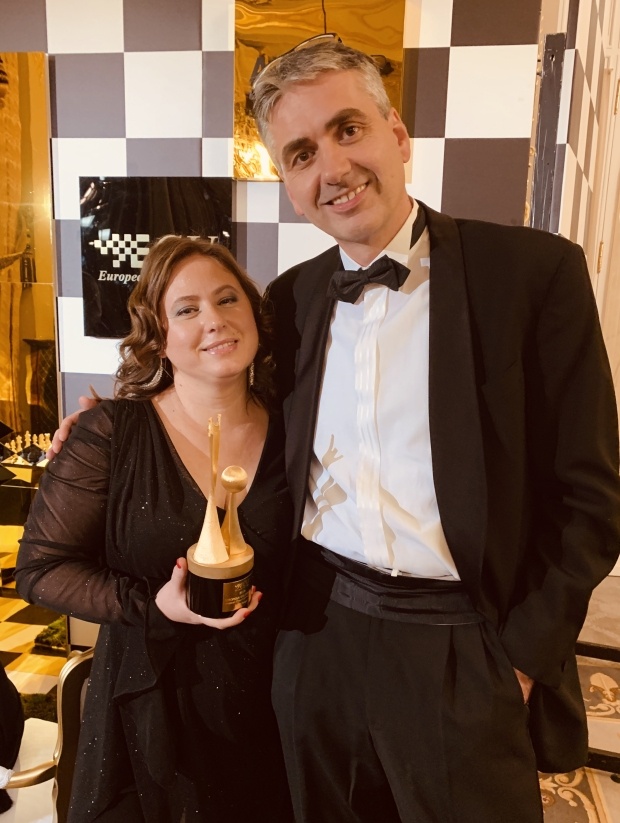I have always been at odds with biographies… Perhaps because, for certain stages of my life, I have a hard time finding the phrases and moments that would make up a short bio: where I went to school, what I studied, when and where I worked, how I moved up the career ladder – I’m not going to continue. Instead, I’m going to tell you the way it happened.
I was a home-schooled, I only went to school to take exams. Neither did I have a job because soon I became a professional chess player.Biography
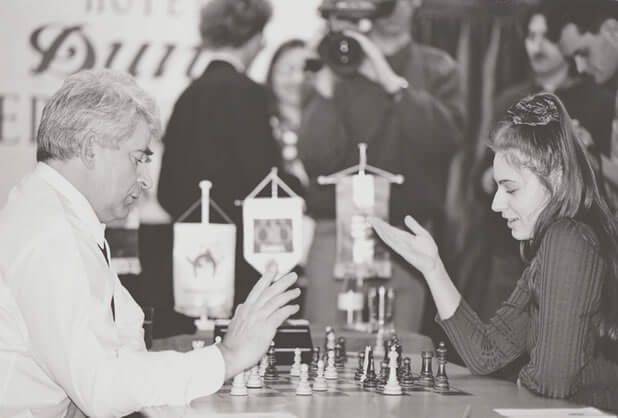
When I was born in Budapest on July 23, 1976, with my very first breath, I found myself in the midst of a pedagogical research and adventure. It was already decided that I would become a chess player since, based on pedagogical experience, my parents decided to prove through the career of my sisters Susan, Sofia and I that with early, purposeful education any healthy child can become a successful person with a sound mind.
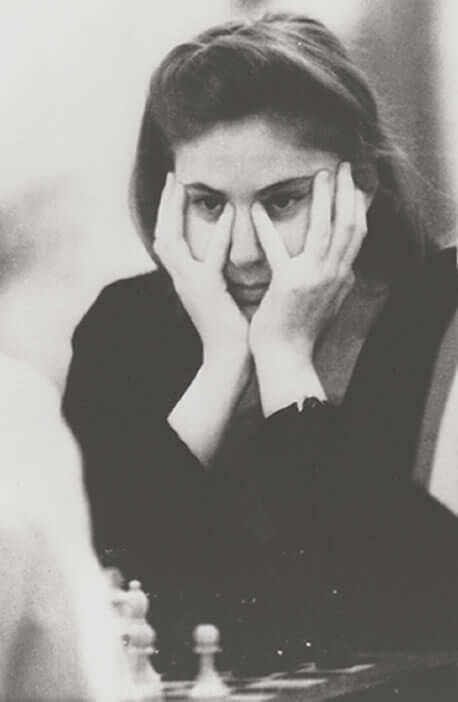
For decades, my biography consisted almost entirely of my achievements in chess. At the age of 9, I won my first international tournament in New York. This became a cover story in The New York Times. I was 11 when I defeated a grandmaster for the first time in my life (in Brussels). I remember how, in his frustration, the Grandmaster banged his head against an elevator door. I became a world youth champion at the age of 12 and then 14 – among boys. No typo: among boys. For me and my parents, the goal was the adult absolute world champion’s title, and not women’s world leadership. Therefore, with the exception of three tournaments, I only sat down at open, as well as men’s tournaments. At my last two women's tournaments, at the age of 12 and 14, my sisters Susan and Sofia, Ildiko Madl and I won the first and second Women's Olympic Champion’s titles in Hungarian chess history.
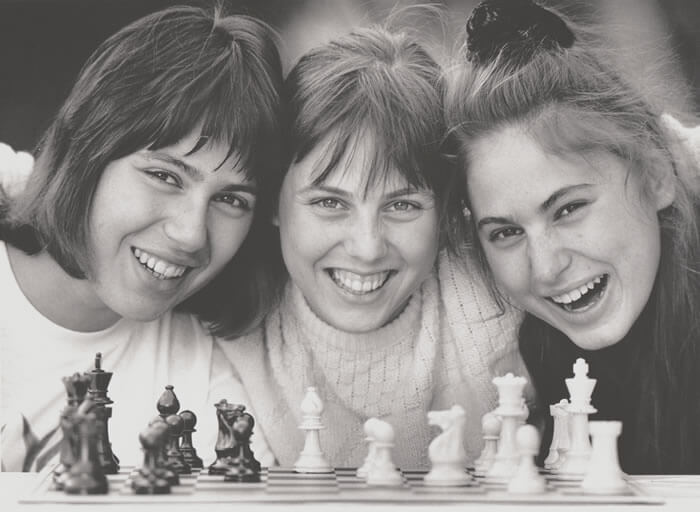
I won the title of International Grandmaster in 1991, at the age of 15, breaking the record of the legendary Bobby Fischer and becoming the youngest Grandmaster of all times. In the same year, I also won the Hungarian Men's Super Championships in Budapest. Without a job, I could not move up the career ladder; however, thanks to my results, I was moving forward steadily and reached ever higher levels on the professional one. Between 1990 and 2000, I won or tied for first place at 20 tournaments and, in 1999, I reached the quarterfinals at the Las Vegas World Championship.
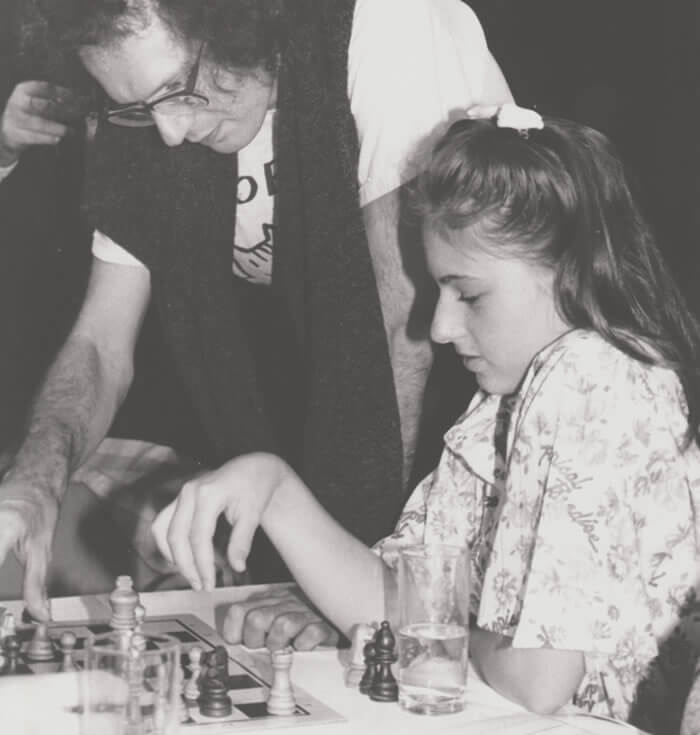
We have two children, Oliver (2004) and Hanna (2006). With them, not only my bio but my whole life became more complete. In chess too, I reached higher: By 2004, I advanced to the 8 th place in the absolute world rankings, and in 2005, I had the chance to play for the men’s world title in San Louis. Speaking of world leaders: I have defeated 11 (e.g. Boris Spassky, Anatoly Karpov, Garry Kasparov, Viswanathan Anand, Magnus Carlsen) out of a total of 20 world champions of chess history, at international competitions. I won a bronze medal at the Men's European Championships in 2011, I have represented Hungary eight times as a member of the men's team at the Chess Olympiad, having won two silver medals, the second one in 2014.
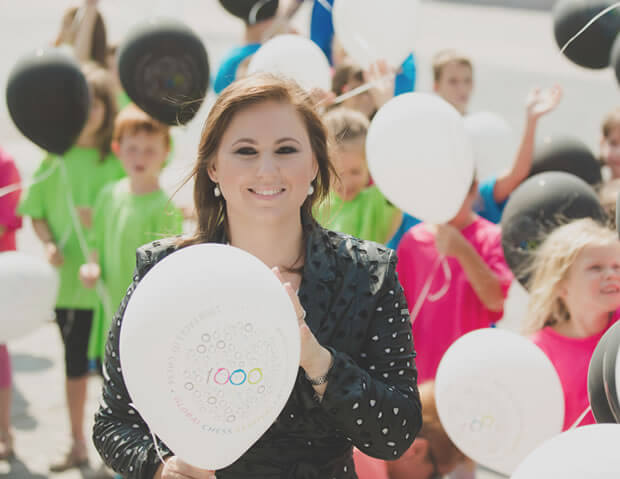
I let go of top sports. Yes, I wrote top sports, and not by chance. For me chess is (also) a sport. I never thought otherwise. I set the chess clock aside but I have stayed by the board both literally and figuratively speaking: I’m now focusing on my family, the international promotion of the sport, book writing and the Judit Polgar Chess Foundation, which I established in 2012. First, I finished a three-volume book about my career until now. Having received two international awards, the book aims at transferring my experience to future generations through my most interesting and instructive games. Under the auspices of the foundation and with the involvement of experts and educators, I have developed a new and unique educational methodology for preschool and elementary school children. From the year 2013, in the lower grades of primary schools in Hungary, "Skill Development Chess"; can be chosen as an independent subject. Chess Playground for preschoolers, as well as the Chess Palace Program for schoolchildren have received attention abroad: In China, several educational institutions apply this methodology.
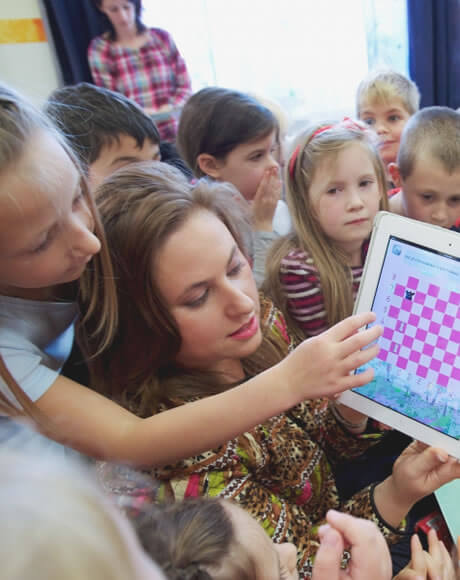
After concluding my top sports career, I have mainly focused on refining the educational programs. I have been organizing the Global Chess Festival linked to my foundation and held in Budapest in October every year. Besides, I have been promoting chess at various talks (TED and TEDx). Nonetheless, I have not distanced myself from competitive sports. In 2015, I became the coach of the Hungarian men's chess team. Under my leadership, the team won a bronze medal at the European Championships in Iceland.
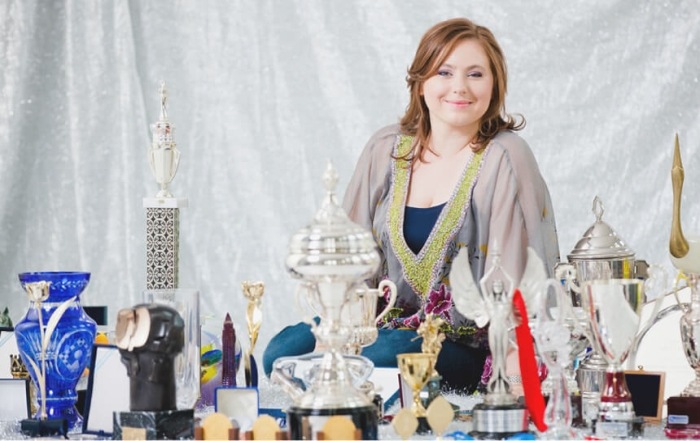
I am convinced that my life path can be an example for girls. An example of perseverance, of the work done in order to achieve a goal and of never giving up on one’s dreams. For me, this is an IMPORTANT MATTER, like that, all caps. This is why, in 2016, I undertook the United Nation's invitation to be the first European to become a member of the 'UN WOMEN Planet 50-50 Champion' team and to represent women in international social life. I had to make a decision: because of my family and my ever-expanding activities (talks, trainings, organization of the Global Chess Festival, integration of chess into education), I would not have been able to dedicate as much time and energy to the chess team as I would have expected from myself. Thus, I resigned from the position of coach. Even so, competitive chess remained part of my life, only in a gentler form: In 2018, I became an honorary vice-president of the International Chess Federation, and I work as an expert commentator at major international tournaments and world championships.
That’s where I am now.
Is this the end?
Only of this biography – for now. ☺
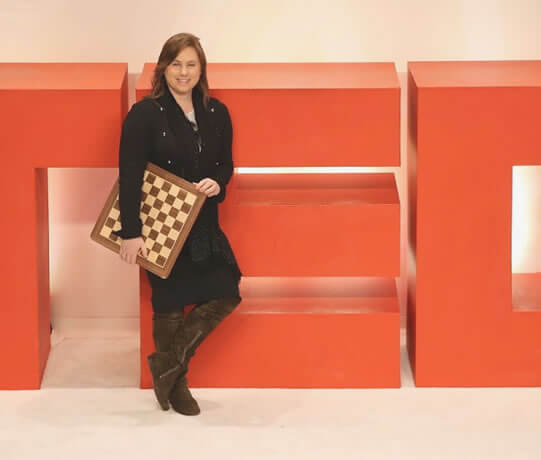
Outstanding awards and recognitions
- Hungarian Chess Player of the Year (in 1989, 1991, 1993, 1994, 1998–2003, 2005–2012, and 2014)
- 8-time "Chess Oscar" winner
- for annual performance: in 1988, 1995, 1996, 2000, 2001, and 2002
- the female chess player of the century: 2001
- FIDE Caissa Award (the newly established "Chess Oscar"): 2012 - the Knight's Cross of the Order of Merit of the Republic of Hungary (Budapest, 2003)
- the Middle Cross of the Hungarian Order of Merit with the Star (Budapest, 2013)
- Prima Primissima (Budapest, 2014)
- Member of the Association of Immortal Hungarian Athletes (Budapest, 2014)
- the Hungarian Order of St. Stephen (Budapest, 2015)
- Best European Learning Materials Award – for the Chess Palace Program (Frankfurt, 2015)
- Honorary Citizen of Budapest (Budapest, 2016)
- James Joyce Award from the UCD Literary & Historical Society (Dublin 2017)
- ECU European Golden Pawn, "European Chess Legend" (Monte Carlo, 2019)
- Honorary Doctor of the University of Physical Education (Budapest, 2020)
